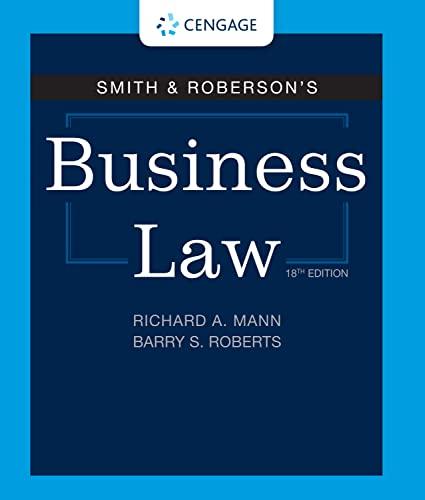Question
One of the most hotly debated ongoing issues relating to sexual assault is how to define consent, and specifically whether consent should require affirmative words
One of the most hotly debated ongoing issues relating to sexual assault is how to define consent, and specifically whether consent should require affirmative words or actions on the part of the complaining witness.
The American Law Institute is in the process of re-examining the 1962 Model Penal Code Article 213 (Sexual Offenses). An early draft would have required affirmative consent similar to controversial "Yes Means Yes" rules that have been adopted on some college and university campuses. This early draft read:
Section 213.0 Definitions
(3) "Consent" means a person's positive agreement, communicated by either words or actions, to engage in sexual intercourse or sexual contact.
After much debate, the ALI rejected the "affirmative consent" definition as having "strayed too far from existing cultural norms"
The issue came up again in August 2019, in a different forum, when the American Bar Association considered a proposed resolution to urge legislatures and courts to define consent in sexual assault cases as the affirmative assent. Over 100 members of the American Law Institute signed a letter objecting to this endorsement of an "affirmative consent" standard, causing the resolution to be tabled.
Question:
If you were a legislator, would you support an "affirmative consent" definition for sexual assault like the proposed Section 213.0 definition quoted above? Why or why not? Support your answer with reference to your views of sound public policy, relating your answer to principles of criminal liability.
Step by Step Solution
There are 3 Steps involved in it
Step: 1

Get Instant Access to Expert-Tailored Solutions
See step-by-step solutions with expert insights and AI powered tools for academic success
Step: 2

Step: 3

Ace Your Homework with AI
Get the answers you need in no time with our AI-driven, step-by-step assistance
Get Started


